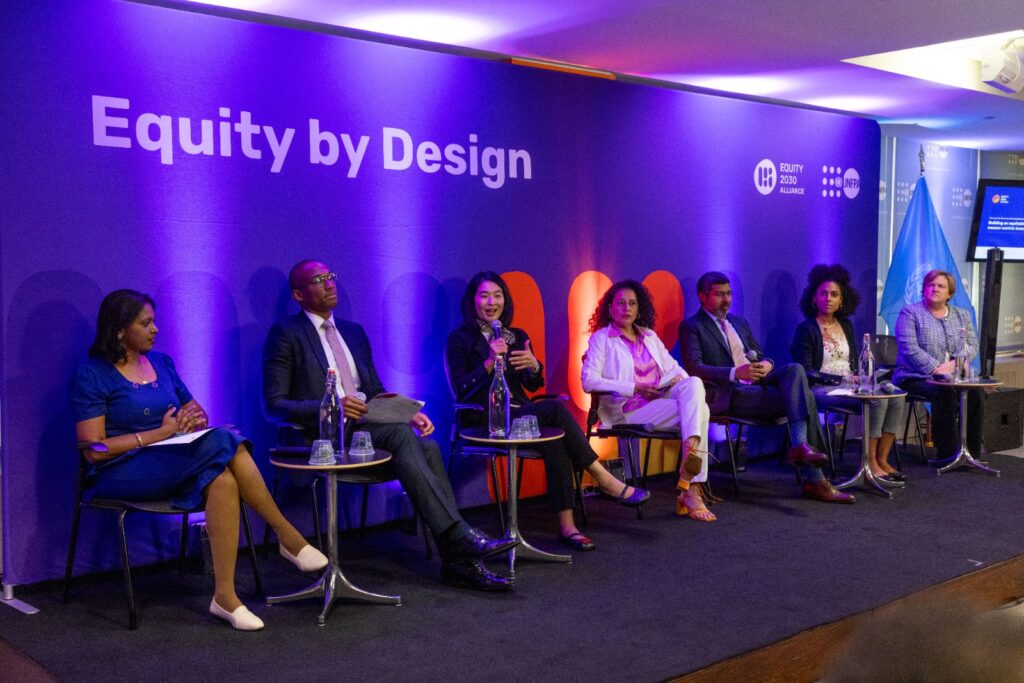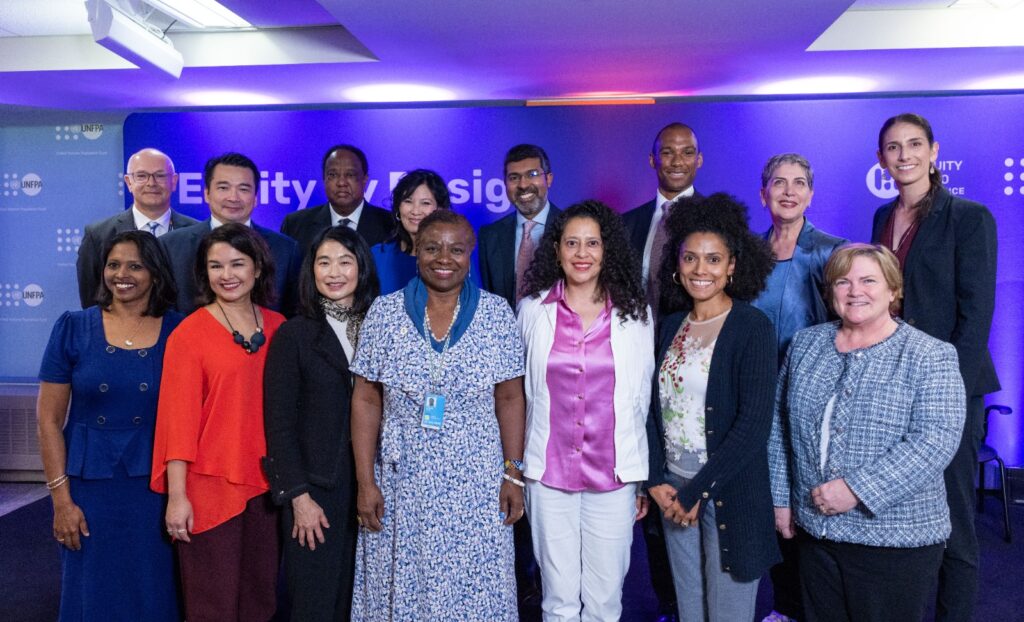Gender Equity and Women-Centric Innovations: UN General Assembly Side Event Insights

During the 78th UN General Assembly session, a high-level side event titled “Building an equitable future through Women-centric Innovations” was organized by the governments of Finland, Ghana, Norway, Vietnam, and UNFPA. This 90-minute event aimed to discuss global efforts to normalize gender equity in science, technology, and financing. It showcased best practices from the public and private sectors, emphasizing transformative norms and data-driven strategies to bridge gender gaps in these areas. This aligns with the goals of the UNFPA-led Equity 2030 Alliance.
In a compelling address by Dr. Natalia Kanem, the United Nations Under Secretary and UNFPA Executive Director, she sheds light on the pervasive discomfort and injuries that many women face due to a world designed predominantly for men. She pointed out alarming examples, like the recent introduction of female crash test dummies and ill-fitting PPE for female health workers during the pandemic. Dr. Kanem stressed the urgent need for women’s inclusion in product design to ensure safety and efficacy. Clinical trials also neglect women, leading to delayed diagnoses and subpar healthcare. She called for increased financing for women-centric solutions, with only 1% of research funding allocated to them. Dr. Kanem’s address resonates with a powerful message: the world is not designed for women, but it can be redesigned with equity by design as a guiding principle. She calls on all to join the Equity 2030 Alliance, a unified global effort aimed at achieving gender equity in science and technology, as a means to disrupt the status quo and foster transformative change.
Gender Equity in Innovation:
The event underscored the importance of integrating gender perspectives into technological innovations. It stressed that women play a pivotal role in advancing progress, peace, and development, making it imperative for innovation to address their unique needs and challenges.
Challenges in the Private Sector:
Ms.Yael Averbuch West, General Manager and Head of Soccer Operations NY/NJ Gotham FC drew attention to the obstacles faced by women athletes in male-dominated sports industries. She stressed the imperative of having more women in leadership positions and achieving equal representation.

Gender Bias in Product Design:
Ms. Karen Korellis Reuther, design critic, at Harvard Graduate School of Design and former creative Executive, at Nike and Reebok, introduced the concept of “shrink it and pink it,” which characterizes products designed for women as scaled-down versions of men’s products, often colored pink. This approach neglects the diverse needs of women consumers and was deemed an area in need of transformation.
Representation in Leadership:
The panel strongly emphasized the significance of increasing the representation of women in leadership roles across various sectors. It was noted that having more women in decision-making positions can lead to more inclusive and gender-responsive innovations.
Dr. Chandra Vadhana’s Remarkable Contribution at the UN General Assembly Side Event

Dr. Chandra Vadhana, one of the esteemed panelists at the recent UN General Assembly side event, left an indelible mark with her insightful and passionate discourse. Her words resonated with hope and optimism, setting the tone for a day filled with impactful discussions.
As Dr. Chandra Vadhana took the stage, her enthusiasm was palpable. She expressed her deep honor and excitement for two compelling reasons. Firstly, the event marked the launch of the Equity 2030 Alliance—an initiative aimed at championing gender-transformative science and technology. Secondly, she highlighted the historic moment in her home country, India, where the parliament had just passed a monumental bill reserving 33% of seats for women. This achievement was met with well-deserved applause, symbolizing progress and gender equality.
Dr. Vadhana’s journey, she shared, represented the experiences of countless underprivileged women. Her presence on the UN stage was a testament to the power of education and opportunities. She underscored that many women worldwide still confront challenges in education, employability, and entrepreneurship—a stark reminder that gender disparities persist.

Motivated by her personal journey, Dr. Chandra Vadhana founded the nonprofit organization Prayaana Labs in India. Over the past decade, Prayaana Labs has empowered numerous women, helping them secure careers and start businesses. This grassroots organization serves as an incubator for women-centric startups, addressing issues that impact women directly. Dr. Vadhana’s tireless efforts have earned her recognition and brought her to Stanford University, where she is a Fulbright Fellow at the Gender Innovations Lab.
Speaking about the Gender Innovations Lab, founded by Professor Londa Schiebinger, Dr. Vadhana highlighted its mission to leverage gender, sex, and intersectionality analysis for designing inclusive products and services across diverse fields, from science and health to engineering and the environment. She emphasized the importance of academic institutions like the Gender Innovations Lab in providing methods and tools to drive practical change. One notable tool mentioned by Dr. Vadhana is the intersectional design toolkit, designed to create more inclusive products.
Dr. Chandra Vadhana, as both a researcher and social entrepreneur, is deeply committed to gender equity. Her vision extends to a world where every woman can realize her full potential. Her presence and words at the UN General Assembly side event resonated as a powerful call to action, inspiring all in attendance.
As the event drew to a close, Mr. Ian McFarlane, the Director of the Division of Communications and Strategic Partnerships at UNFPA, delivered a heartfelt vote of thanks, acknowledging the inspiring panels and participants who contributed to this remarkable event.

The UN General Assembly side event underscored the pressing need to address gender disparities in innovation, emphasizing a shift in mindset to prioritize women’s well-being. The Equity 2030 Alliance made its debut, aiming to disrupt norms and advance gender-transformative science and technology, fostering an equitable and innovative world for all.









